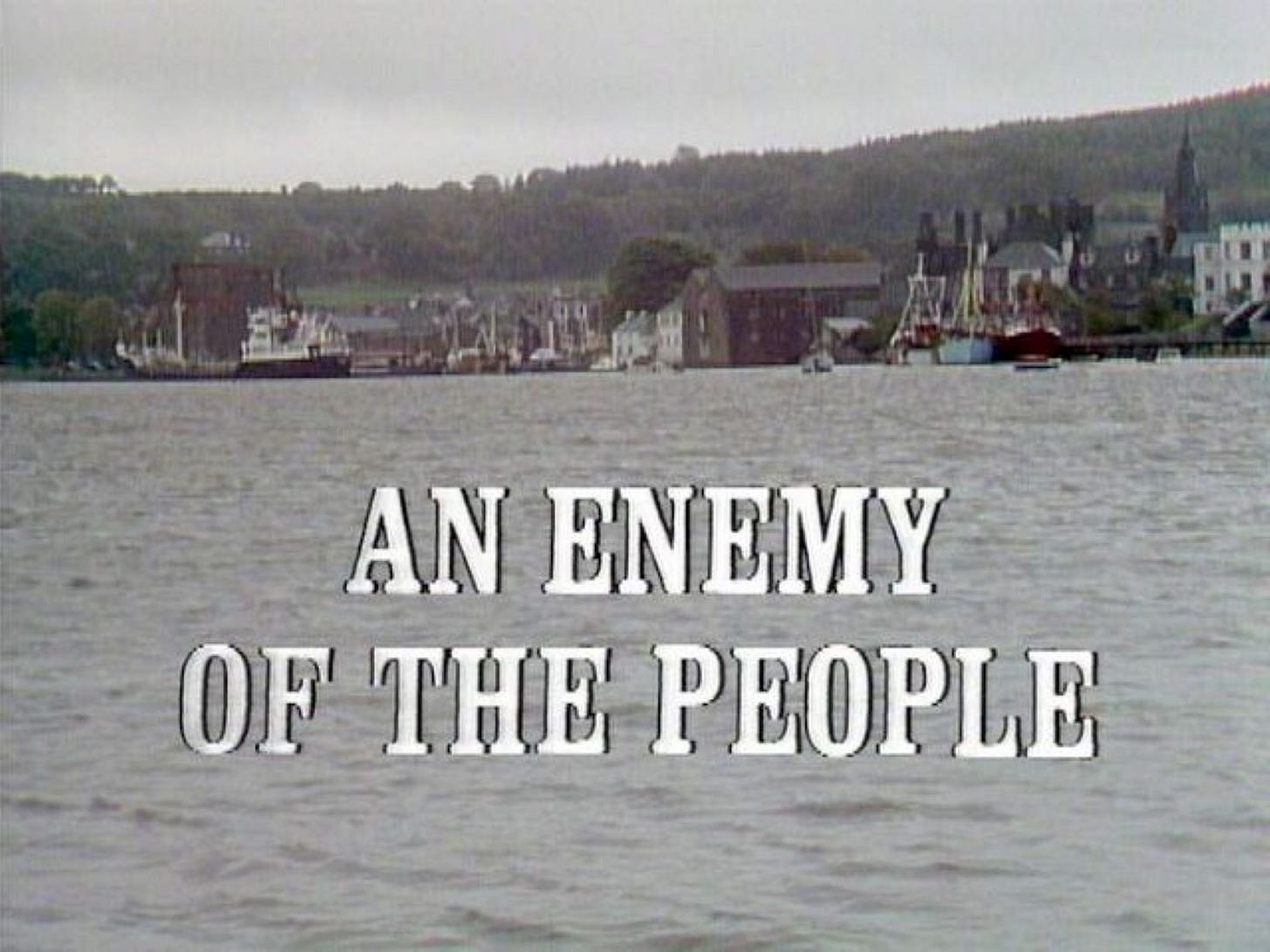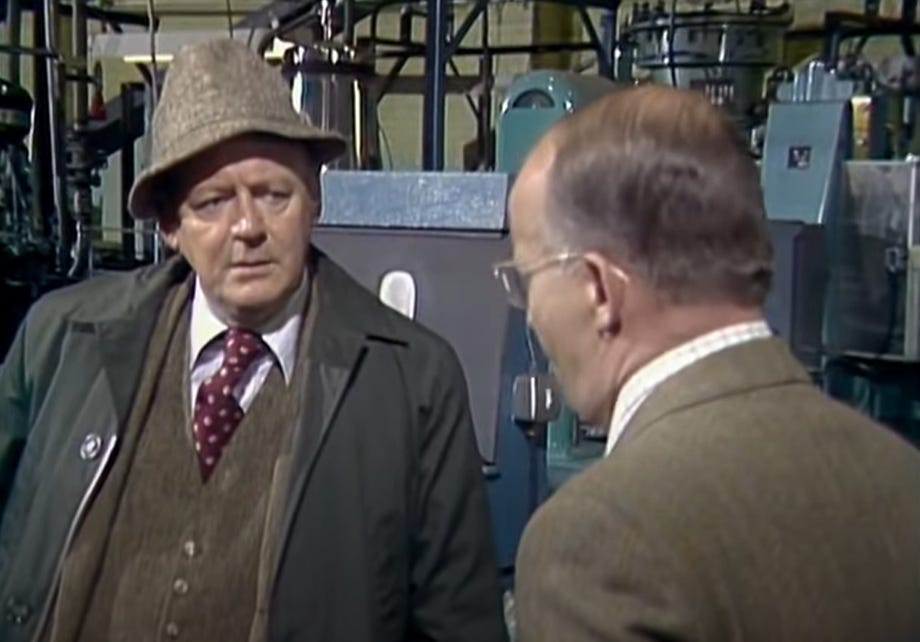Ibsen’s An Enemy of the People
Truth, Conformity, and the Courage to Stand Alone
For the local film discussion group I belong to, I watched the 1980 BBC adaptation of An Enemy of the People, modernized to an English town. Henrik Ibsen’s 1882 play is timeless and universal, exploring the clash between truth and conformity, integrity and crowd pressure.
The Story: A Whistleblower Against the Crowd
Dr. Thomas Stockmann, a physician and municipal medical officer, discovers that the local spring baths, the town’s pride and main source of income, are contaminated and toxic.
Expecting congratulations and gratitude, he instead faces intense backlash as the mayor (his brother), the local newspaper, the labor union, and the town’s citizens turn against him. The man who tried to protect the public is branded “an enemy of the people.” It’s a sharp portrayal of how societies punish those who reveal inconvenient truths.
Ibsen admires Stockmann’s courage but also reveals his personal flaws. Idealistic but naive, his moral clarity moves into self-righteousness. Convinced of his own righteousness, he grows openly contemptuous of the town folk, declaring them unfit to govern and dreaming of rule by the “intellectually superior.” He is both a prophet and an idealizer of authoritarianism.
The 1980 BBC Production
Directed by Peter Gill, with Robert Urquhart as Stockmann and John Woodvine as the mayor, the adaptation captures this tension well. Urquhart’s Stockmann begins jovial and idealistic, then hardens into messianic certainty. Woodvine’s mayor, calm, pragmatic, and Machiavellian, embodies the respectable cowardice of bureaucracy.
The townsfolk who angrily turn on Stockman aren’t really villains but ordinary people protecting their livelihoods and the town’s reputation. The drama unfolds not as absolute good versus evil, but as a clash of standard group dynamics, including competing legitimate interests.
The play has been embraced across the political spectrum, as a defense of free speech, a warning against moral absolutism, and, in Arthur Miller’s 1950 version, a critique of McCarthy-era conformity. In today’s age of environmental crises, misinformation, and cancel culture, it is as timely as ever.



